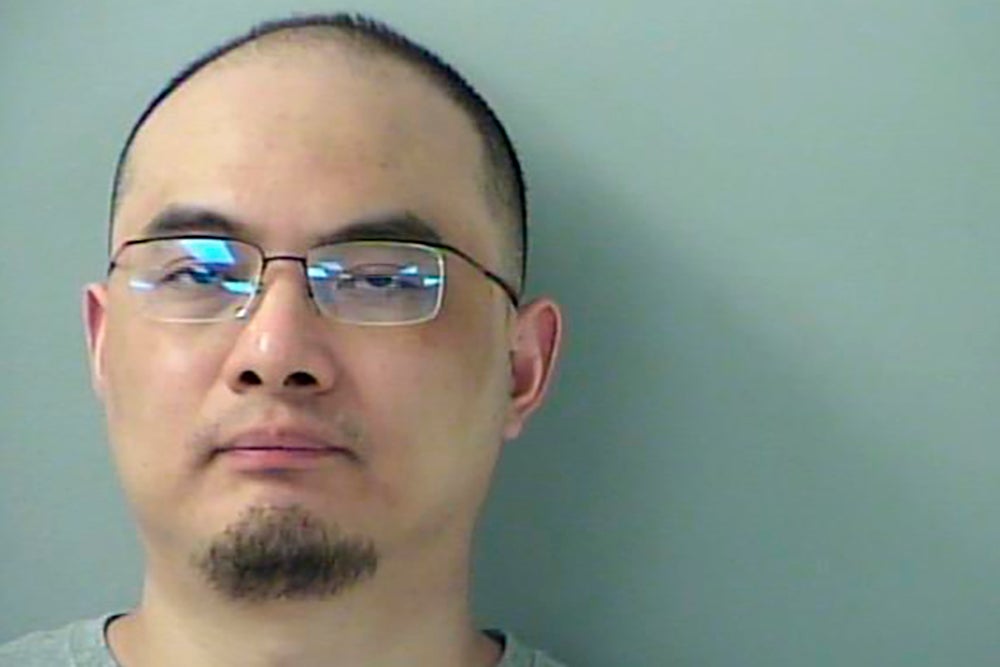Chinese national faces sentencing in US aviation spying case
A federal judge is preparing to sentence a Chinese national convicted of trying to steal trade secrets from U.S. aviation and aerospace companies

Your support helps us to tell the story
From reproductive rights to climate change to Big Tech, The Independent is on the ground when the story is developing. Whether it's investigating the financials of Elon Musk's pro-Trump PAC or producing our latest documentary, 'The A Word', which shines a light on the American women fighting for reproductive rights, we know how important it is to parse out the facts from the messaging.
At such a critical moment in US history, we need reporters on the ground. Your donation allows us to keep sending journalists to speak to both sides of the story.
The Independent is trusted by Americans across the entire political spectrum. And unlike many other quality news outlets, we choose not to lock Americans out of our reporting and analysis with paywalls. We believe quality journalism should be available to everyone, paid for by those who can afford it.
Your support makes all the difference.A Chinese national convicted of trying to steal trade secrets from multiple U.S. aviation and aerospace companies, including the theft of proprietary airplane engine fan technology, is due to be sentenced Wednesday, with prosecutors seeking a 25-year prison term.
Yanjun Xu's attorneys say such a sentence would be far too harsh and that the just under five years he's served since his arrest is sufficient punishment.
Federal Judge Timothy Black in Cincinnati will decide Xu's sentence.
The government alleges that beginning in December 2013, Xu recruited experts who worked at aviation companies, including GE Aviation in Cincinnati.
Federal prosecutors described Xu as a deputy division director at the Chinese Ministry of State Security, the country’s intelligence and security agency. In that role, he and others would pay stipends for experts to travel to China under the guise of delivering a university presentation, the government said.
Specifically, Xu was accused by the government of trying to steal technology related to GE Aviation’s composite aircraft engine fan, unduplicated by other companies, to benefit the Chinese government.
Xu, 42, was arrested in Belgium in 2018 after traveling there to meet a GE employee in Europe on business—the government says the employee was not charged—and was later extradited to the United States.
Xu was charged with conspiring and attempting to commit economic espionage and theft of trade secrets and convicted last year of all charges after a two-week trial.
Xu's punishment must reflect his activity and efforts on behalf of China, prosecutors argued in a Nov. 8 court filing.
“The sentence must promote respect for the rule of law among the countless employees with access to the trade secrets of American businesses, but also among the foreign governments who seek to convert such information,” they wrote.
Xu's attorneys argued that he was not a spy, that he never asked for trade secrets and that the case involved the legal exchange of trade information.
“We urge the Court to resist the government’s demands to treat Mr. Xu as an example, as a message to an entire nation,” they wrote in a court filing ahead of sentencing. “Like every other criminal defendant, Mr. Xu is entitled to be treated as an individual, not a statistic.”